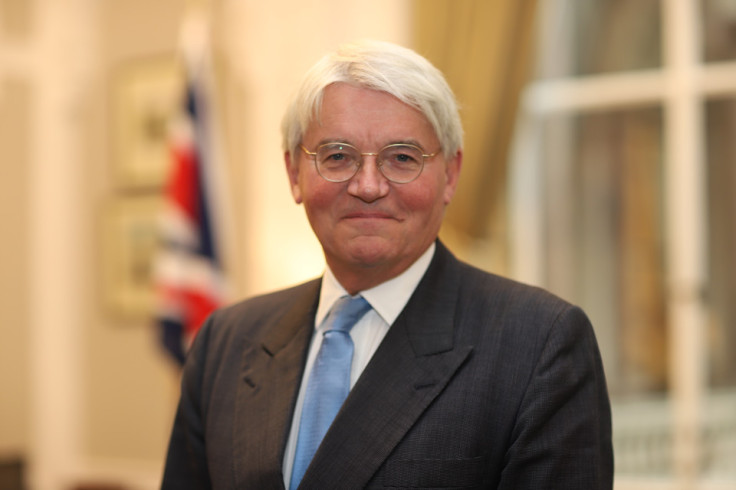Development Minister highlights 'truly sobering' global refugee numbers
Britain's Minister for Development and Africa, Andrew Mitchell, has outlined steps that can be taken to tackle the 'sobering' numbers forcibly displaced around the world.

According to Britain's Minister for Development and Africa, Andrew Mitchell: "The challenge of meeting even basic needs for forcibly displaced people is getting harder." The Minister believes the figures are "truly sobering", with over 108 million forcibly displaced in 2022. Of those forcibly displaced, 35.3 million were refugees.
Mitchell made these comments in a pre-recorded speech delivered to the Towards the Global Refugee Forum 2023 at Wilton Park. Held from the 10th to the 12th of July, the event at Wilton Park brought together representatives of governments, multilateral and regional bodies, civil society and the private sector, to tackle the challenges presented to the international community by refugee crises.
A key purpose of the event was to ensure that the international community realises the objectives of the Global Compact on Refugees. Affirmed by the UN General Assembly in 2018, the Global Compact on Refugees establishes a framework for nation-states to share responsibility in a more predictable and equitable way. It ultimately underscores that refugee crises require effective international cooperation to achieve sustainable solutions.
A key arrangement established by the Global Compact on Refugees is the Global Refugee Forum (GRF). The first GRF took place back in 2019. Later this year, the 2023 GRF will take place from the 13th to the 15th of December in Geneva.
Mitchell highlighted the potential of the 2023 GRF "to be a moment that galvanises meaningful change". Change that "transforms the lives of both forcibly displaced people and their host communities". Moreover, the Minister used his speech to articulate three ways in which the forced displacement of people can be addressed.
Firstly, cooperation "across sectors and geographies" addresses "the root causes of displacement". One such cause is "armed conflict and violence", Mitchell explained. He referred to the conflicts in Sudan and Ukraine as examples of violence that has driven the displacement of refugees.
In Sudan, the conflict has been ongoing since April 2023. The British government have sanctioned businesses funding the Sudanese Armed Forces and the Rapid Support Forces in Sudan. Moreover, 800,000 people have been displaced inside Sudan by the current fighting.
Because of the ongoing war in Ukraine, 6.3 million refugees have been recorded around the world. The number of internally displaced by the war is five million, with a further 17 million people in Ukraine in need of humanitarian support.
Crucially, maintaining peace within and between countries is clearly important for the prevention of refugee crises. However, Mitchell also explained that restoring peace in areas of conflict is important to allow refugees to return to their homes.
Another cause of forced displacement is climate change. According to Mitchell: "Climate migration and displacement is no longer a hypothetical, but a reality."
The Minister explained that with the increase in the global threat of climate change, the number of those displaced will increase. Therefore, we must be aware of "accelerating climate impacts such as drought and environmental degradation", Mitchell explained.
Mitchell also highlighted the importance of including forcibly displaced people in the conversation on climate change. He went on to explain that Britain "is acting to mobilise climate funding that will address the underlying climate-related drivers of humanitarian crises", increasing the supply of climate finance for "vulnerable countries".
Secondly, Mitchell further said: "We can put those who bear the brunt of displacement at the centre of our approach to solutions." He spoke of Britain's role in championing "the rights of women and girls around the world". The Development Minister also spoke of the importance of women and girls in his speech on Britain's approach to international development earlier this year.
One "core principle" for furthering the interests of women and girls is ensuring "access to 12 years of quality education", Mitchell presented. Educating displaced girls can empower them against gender violence and give them the capabilities they need "to rebuild their home communities when they are able to return".
Thirdly, Mitchell demonstrated that action can be taken to help refugees "contribute to their host communities". For example, by establishing the "freedom of movement and right to work" of refugees, displaced people can be empowered to become a part of their host country and society.
Important to achieving this is the "right policy environment and a strong enabling environment made possible through development". These two conditions cannot be created without the inclusion of "refugees in national systems and national planning", Mitchell clarified.
© Copyright IBTimes 2024. All rights reserved.





